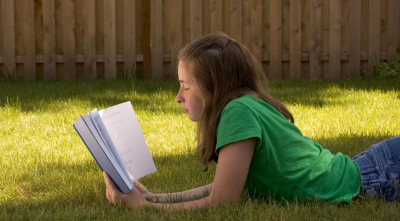Statistics have shown that over summer vacation, many students lose a bit of what they have learned throughout the year. Reading tends to be at the top of that list.
We want our students, your children, to be able to retain what they’ve learned, but we also want the kids to have fun and enjoy their summer. So how can we balance both of those things?
Fun Ways to Retain What Your Child Learned
Summer learning and keeping up with school is not a task that has to be stressful or boring. There are simple and strategic ways as a parent that you can help your child. Next thing you know, they will be recalling and using their previous year’s obtained knowledge without even knowing it.
Here are some ways by which you can help your child remember what they’ve learned, without feeling like they didn’t get a summer break.
1. Reading
Reading, statistically proven, is the subject that takes the biggest hit when it comes to schooling retention. We understand that all year long, your child is probably reading a portion of literature and history in which they’re not interested. This is not the time to force them to read something in which they’re uninterested.
- Know your child, and find age-appropriate books for them that they find interesting.
- If they enjoy mystery, there are tons of mystery books for youth: The Bailey School Kids, The Boxcar Children, Nancy Drew, and Goosebumps are a few.
- If they are the class clown, maybe consider Junie B. Jones or Captain Underpants.
- If they like adventure and fantasy, maybe consider Percy Jackson, Harry Potter, Narnia, or Lord of the Rings.
- There are so many options out there, and often for the individuals who don’t enjoy reading, it is because they have not found a book yet that they like.
- Having books that are also movies is awesome to encourage readers as well.
- Know your child, and meet them where they are.
2. Writing
Writing is one of those subjects that students often love or hate.
A very simple form of writing that can help your child over the summer with their writing skills, and also their mental health, is journaling. Keeping a journal allows your child to express themselves. It doesn’t have to be a 1,000-word essay, it can be just a few sentences each day about what they did and how they feel.
If they are imaginative and good storytellers, encourage them to write their stories down and then share them with the family later. Blogging short stories can be a fun way to go as well.
Let them take the lead again on this one because we want it to be enjoyable and not for them to think of it as boring work.
3. Math
There are many ways to be creative with math over the summer for your child that doesn’t involve sitting down and working out 15 math problems. If your child would like to sew a dress, create a costume, make pillows, or other decor, math is always involved when it comes to measuring and fitting things appropriately.
Maybe your child is old enough to help with a family business or has some endeavor that would allow them to keep up with money and finances. This is another great way for them to practice math skills.
Carpentry work and building things are also wonderful ways of putting math skills to work and, honestly, are ways that your child will not feel that it is tied to school.
In fact, this may be a perfect opportunity for your child to learn why they learn math in school. It’s not just for learning in and of itself, but it helps in everyday life and fun activities as well.
4. History
History is one of those subjects that has so many possible ways to explore it in a fun way.
There are tons of museums dedicated to history and specific types of history. Whether it’s the Jurassic Period, the Holocaust, aviation, the Titanic, or whatever field or topic your child is most interested in, there is probably a museum related to it.
Reenactments are pretty popular as well. You can find war reenactments and Renaissance fairs all over. Things like this can be a fun experience for the whole family.
Something that is not particular to history, but is a good match for it, is Jeopardy. You can play Jeopardy with the family or have a game night with friends that include historical facts, and your child probably won’t even recognize it as a history review.
It’s a fun way to get anyone involved. Not to mention, we as adults could probably brush up on our history as well.
5. For the Philomath
If you have a child who actually really loves school and learning, they may want to bypass some of the other ways of brushing up on their previous year of learning.
Create a calendar with a check-off list reviewing what they prefer. It doubles in teaching them organization and time management.
The Crenshaw Academy
Here at the Crenshaw Academy in Orlando, we are known for our out-of-the-box ways of teaching. Finding innovative and effective ways to learn is what we are all about. We are a K-12 private school interested in helping cultivate model citizens and the next generation of leaders.
If you or someone you know is interested in our school, you can learn more about us on our website. You can visit our contact page to learn more about ways to get in touch with us.
We look forward to speaking with you and learning how we can help you and your child in their academic journey!


